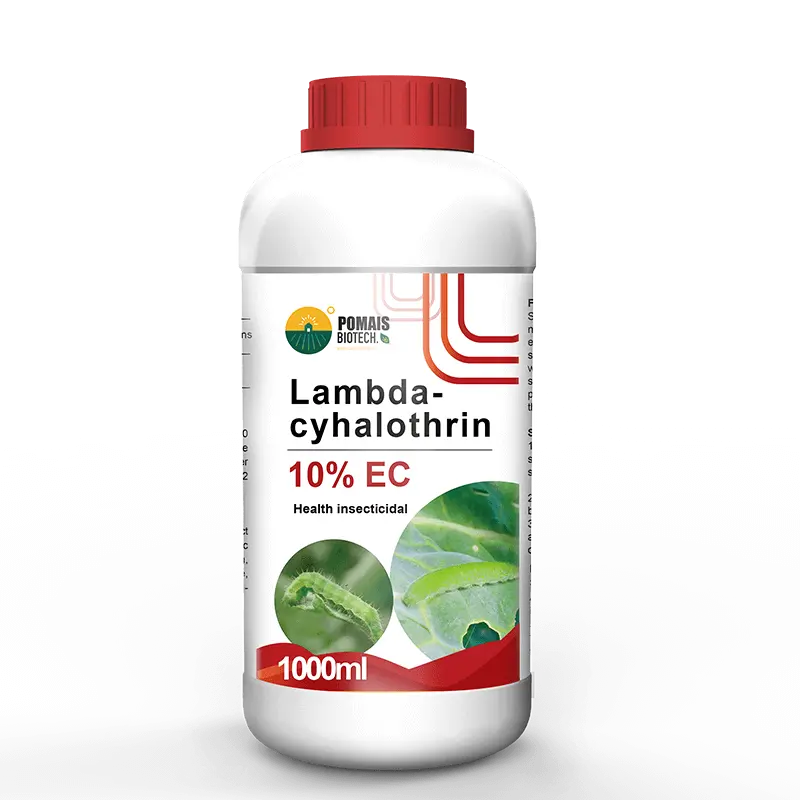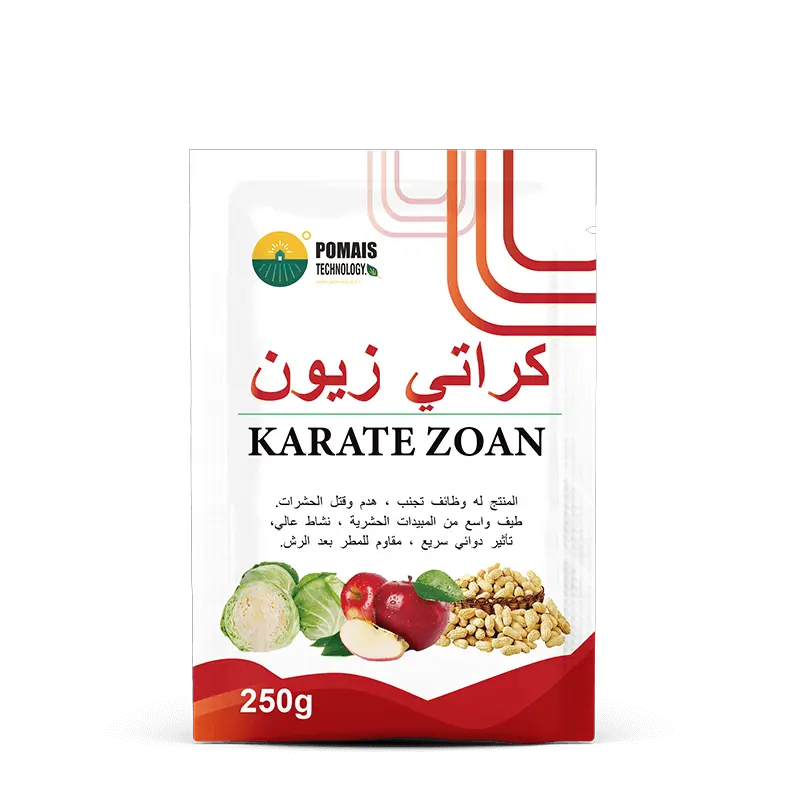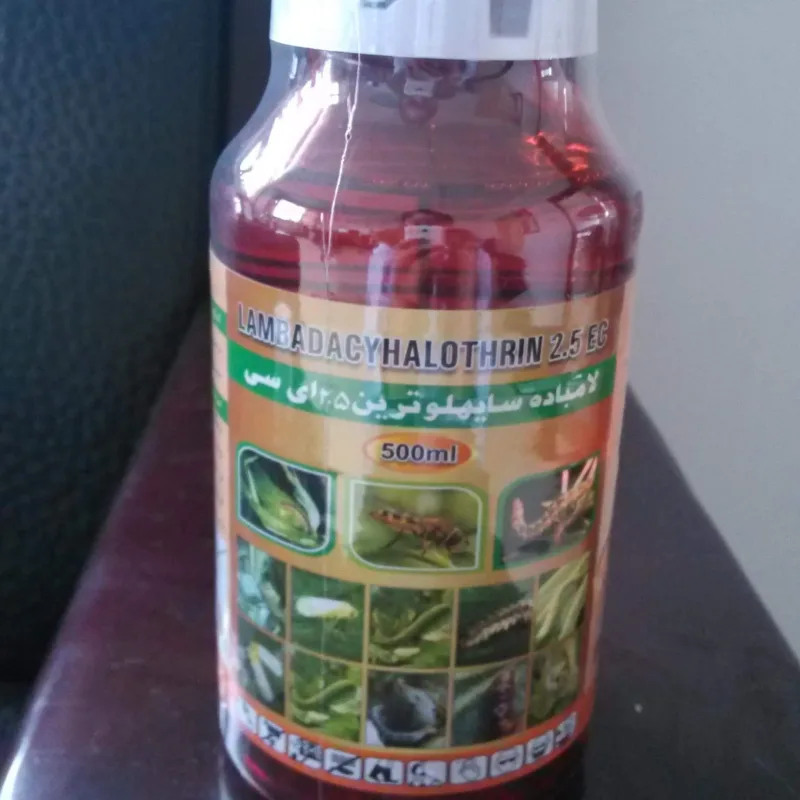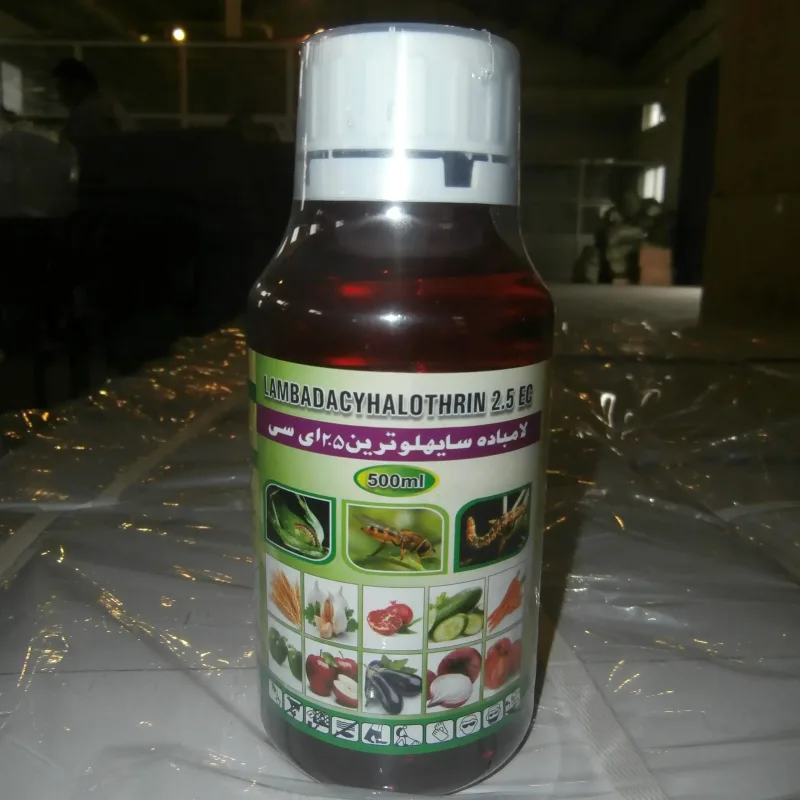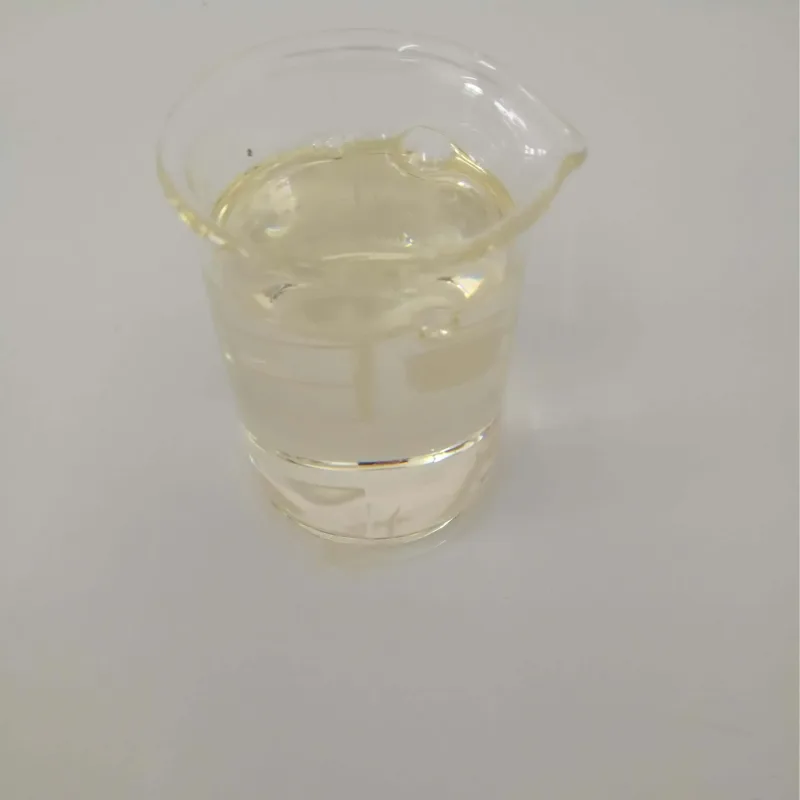Lambda-Cyhalothrin vs. Permethrin: Which is better?
Lambda-cyhalothrin and permethrin are two widely used synthetic pyrethroid insecticides known for their effectiveness against a broad spectrum of agricultural, public health, and structural pests. Both compounds are modeled after natural pyrethrins but offer enhanced stability, longer residual activity, and stronger knockdown effects.
This article explores the key differences between lambda-cyhalothrin vs permethrin, comparing their chemical properties, mode of action, use cases, efficacy, and safety, to help distributors, pest control operators, and agricultural professionals make informed purchasing and application decisions.
What Is Lambda-Cyhalothrin?
Lambda-Cyhalothrin is a Type II pyrethroid insecticide known for its high potency, quick knockdown effect, and broad-spectrum efficacy. It targets insects by disrupting their voltage-gated sodium channels, leading to paralysis and death. Lambda-cyhalothrin is widely used in foliar spray formulations, public health mosquito control, and crop protection programs. It’s effective at very low dose rates and often found in suspension concentrates (SC) and capsule suspensions (CS) for extended residual control.
What Is Permethrin?
Permethrin is a Type I pyrethroid, offering strong knockdown and residual action. It’s extensively used in household, livestock, vector control, and agriculture settings. Permethrin also targets sodium channels, but lacks the alpha-cyano group present in Type II pyrethroids. It’s available in emulsifiable concentrates (EC), wettable powders (WP), and dust formulations, and is approved for both indoor and outdoor use.
Quick Comparison Table: Lambda-Cyhalothrin vs Permethrin
| Feature | Lambda-Cyhalothrin | Permethrin |
|---|---|---|
| Chemical Class | Type II Pyrethroid | Type I Pyrethroid |
| Mode of Action | Sodium channel modulator (IRAC 3A) | Sodium channel modulator (IRAC 3A) |
| Speed of Action | Fast knockdown | Fast knockdown |
| Residual Activity | Long (up to 4 weeks or more) | Moderate to long (2–4 weeks) |
| Dosage Rate | Low dose needed (high potency) | Higher dose required |
| Common Formulations | SC, CS, EW | EC, WP, Dust |
| Typical Use Sites | Crops, public health, turf | Household, livestock, gardens |
| Target Pests | Mosquitoes, thrips, beetles | Ants, flies, ticks, fleas, mites |
| Mammalian Toxicity | Low | Low |
| UV/Water Stability | Moderate | Moderate to high |
1. Chemical and Structural Overview
| Feature | Lambda-Cyhalothrin | Permethrin |
|---|---|---|
| Chemical Group | Synthetic pyrethroid (Type II) | Synthetic pyrethroid (Type I) |
| IRAC Mode of Action | Group 3A – Sodium channel modulator | Group 3A – Sodium channel modulator |
| Molecular Action | Prolonged nerve excitation with cyano group | Nerve excitation without cyano group |
| Structural Formula | More potent, lower dose required | Less potent, higher dose usually needed |
Lambda-cyhalothrin is a Type II pyrethroid, which contains a cyano group. This structural feature results in longer-lasting neurotoxic effects, making it more potent per gram of active ingredient compared to permethrin.
2. Lambda-Cyhalothrin vs Permethrin: Which Is Better for Pest Control?
Knockdown and Residual Power
- Lambda-cyhalothrin provides faster knockdown and stronger residual control, even at lower concentrations.
- Permethrin, while effective, may require higher application rates and offers moderate residual performance on certain surfaces.
Target Pests
Both are effective against:
- Mosquitoes, flies, cockroaches, ants, bed bugs
- Agricultural pests: aphids, thrips, caterpillars
- Public health vectors: ticks, fleas
However:
- Lambda-cyhalothrin is often preferred for commercial agriculture, vector control, and resistant pest populations.
- Permethrin is commonly used in public health, veterinary products, residential pest control, and mosquito nets.
Application Flexibility
- Lambda-cyhalothrin is approved for indoor and outdoor use, including crops, livestock housing, grain storage, and building perimeters.
- Permethrin is used in clothing treatment, insect-repellent fabrics, animal sprays, and residential premises.
3. Formulation and Cost Considerations
- Lambda-cyhalothrin tends to be more concentrated and cost-effective per treated hectare, but often comes at a higher unit price.
- Permethrin formulations are generally more affordable upfront, suitable for low-cost retail markets.
Formulations available from our company include:
- Lambda-cyhalothrin 2.5% EC, 5% EC, 10% WP, 25g/L CS
- Permethrin 10% EC, 25:75 EC, 50:50 EC, 92% TC
We also offer custom formulations for specific markets and resistance profiles.
4. Safety and Environmental Impact
| Aspect | Lambda-Cyhalothrin | Permethrin |
|---|---|---|
| Toxicity to Humans | Moderate (requires PPE) | Moderate (slightly more dermal toxicity) |
| Aquatic Toxicity | Highly toxic to fish and aquatic life | Also toxic, but degrades faster |
| Use in Public Health | WHO-approved for IRS and vector control | Used in clothing and personal repellents |
Both products must be used with caution near water bodies. Personal protective equipment (PPE) is strongly recommended during application, especially in enclosed or poorly ventilated areas.
5. Mixing or Rotating Lambda-Cyhalothrin and Permethrin
In some pest management programs, rotating or mixing lambda-cyhalothrin and permethrin can help delay resistance development, especially in mosquito or bed bug control scenarios.
However, tank mixing should only be performed under label guidance and with technical supervision, as certain combinations may lead to antagonistic or synergistic effects.
Conclusion: Permethrin vs Lambda-Cyhalothrin – Choosing the Right Active Ingredient
The choice between permethrin vs lambda-cyhalothrin depends on:
- Target pest
- Treatment area
- Resistance management goals
- Budget and formulation preference
Summary:
- Choose lambda-cyhalothrin for faster knockdown, superior residual activity, and high-resistance environments.
- Choose permethrin for broader public health use, affordability, and repellent applications.
Professional Supply for B2B Clients
We are a certified manufacturer and exporter of technical-grade and formulated insecticides, including:
- Lambda-cyhalothrin EC, CS, WP
- Permethrin EC, TC, household-grade solutions
- OEM/ODM formulation services
- Free samples and COA/MSDS support
- Private label packaging for pest control brands
We support clients in agriculture, public health, urban pest control, and distribution across Asia, Africa, South America, and the Middle East.
Contact Us for Bulk Orders or Custom Formulations
If you are looking to source high-performance pyrethroid insecticides, compare market options, or build your own pest control product line, we are ready to assist.
Let us know your target pests, preferred formulations, and packaging needs—we’ll provide technical support and competitive solutions tailored to your market.
Partner with POMAIS for Insecticide Solutions
Shijiazhuang Pomais Technology Co., Ltd. offers global B2B support for both Lambda-Cyhalothrin and Permethrin formulations:
- Available types: EC, SC, CS, WP, OD
- Free samples and technical documentation
- Support for private label development
- Global logistics and fast delivery
Lambda-cyhalothrin and permethrin are two widely used synthetic pyrethroid insecticides known for their effectiveness against a broad spectrum of agricultural, public health, and structural pests. Both compounds are modeled after natural pyrethrins but offer enhanced stability, longer residual activity, and stronger knockdown effects.
This article explores the key differences between lambda-cyhalothrin vs permethrin, comparing their chemical properties, mode of action, use cases, efficacy, and safety, to help distributors, pest control operators, and agricultural professionals make informed purchasing and application decisions.
What Is Lambda-Cyhalothrin?
Lambda-Cyhalothrin is a Type II pyrethroid insecticide known for its high potency, quick knockdown effect, and broad-spectrum efficacy. It targets insects by disrupting their voltage-gated sodium channels, leading to paralysis and death. Lambda-cyhalothrin is widely used in foliar spray formulations, public health mosquito control, and crop protection programs. It’s effective at very low dose rates and often found in suspension concentrates (SC) and capsule suspensions (CS) for extended residual control.
What Is Permethrin?
Permethrin is a Type I pyrethroid, offering strong knockdown and residual action. It’s extensively used in household, livestock, vector control, and agriculture settings. Permethrin also targets sodium channels, but lacks the alpha-cyano group present in Type II pyrethroids. It’s available in emulsifiable concentrates (EC), wettable powders (WP), and dust formulations, and is approved for both indoor and outdoor use.
Quick Comparison Table: Lambda-Cyhalothrin vs Permethrin
| Feature | Lambda-Cyhalothrin | Permethrin |
|---|---|---|
| Chemical Class | Type II Pyrethroid | Type I Pyrethroid |
| Mode of Action | Sodium channel modulator (IRAC 3A) | Sodium channel modulator (IRAC 3A) |
| Speed of Action | Fast knockdown | Fast knockdown |
| Residual Activity | Long (up to 4 weeks or more) | Moderate to long (2–4 weeks) |
| Dosage Rate | Low dose needed (high potency) | Higher dose required |
| Common Formulations | SC, CS, EW | EC, WP, Dust |
| Typical Use Sites | Crops, public health, turf | Household, livestock, gardens |
| Target Pests | Mosquitoes, thrips, beetles | Ants, flies, ticks, fleas, mites |
| Mammalian Toxicity | Low | Low |
| UV/Water Stability | Moderate | Moderate to high |
1. Chemical and Structural Overview
| Feature | Lambda-Cyhalothrin | Permethrin |
|---|---|---|
| Chemical Group | Synthetic pyrethroid (Type II) | Synthetic pyrethroid (Type I) |
| IRAC Mode of Action | Group 3A – Sodium channel modulator | Group 3A – Sodium channel modulator |
| Molecular Action | Prolonged nerve excitation with cyano group | Nerve excitation without cyano group |
| Structural Formula | More potent, lower dose required | Less potent, higher dose usually needed |
Lambda-cyhalothrin is a Type II pyrethroid, which contains a cyano group. This structural feature results in longer-lasting neurotoxic effects, making it more potent per gram of active ingredient compared to permethrin.
2. Lambda-Cyhalothrin vs Permethrin: Which Is Better for Pest Control?
Knockdown and Residual Power
- Lambda-cyhalothrin provides faster knockdown and stronger residual control, even at lower concentrations.
- Permethrin, while effective, may require higher application rates and offers moderate residual performance on certain surfaces.
Target Pests
Both are effective against:
- Mosquitoes, flies, cockroaches, ants, bed bugs
- Agricultural pests: aphids, thrips, caterpillars
- Public health vectors: ticks, fleas
However:
- Lambda-cyhalothrin is often preferred for commercial agriculture, vector control, and resistant pest populations.
- Permethrin is commonly used in public health, veterinary products, residential pest control, and mosquito nets.
Application Flexibility
- Lambda-cyhalothrin is approved for indoor and outdoor use, including crops, livestock housing, grain storage, and building perimeters.
- Permethrin is used in clothing treatment, insect-repellent fabrics, animal sprays, and residential premises.
3. Formulation and Cost Considerations
- Lambda-cyhalothrin tends to be more concentrated and cost-effective per treated hectare, but often comes at a higher unit price.
- Permethrin formulations are generally more affordable upfront, suitable for low-cost retail markets.
Formulations available from our company include:
- Lambda-cyhalothrin 2.5% EC, 5% EC, 10% WP, 25g/L CS
- Permethrin 10% EC, 25:75 EC, 50:50 EC, 92% TC
We also offer custom formulations for specific markets and resistance profiles.
4. Safety and Environmental Impact
| Aspect | Lambda-Cyhalothrin | Permethrin |
|---|---|---|
| Toxicity to Humans | Moderate (requires PPE) | Moderate (slightly more dermal toxicity) |
| Aquatic Toxicity | Highly toxic to fish and aquatic life | Also toxic, but degrades faster |
| Use in Public Health | WHO-approved for IRS and vector control | Used in clothing and personal repellents |
Both products must be used with caution near water bodies. Personal protective equipment (PPE) is strongly recommended during application, especially in enclosed or poorly ventilated areas.
5. Mixing or Rotating Lambda-Cyhalothrin and Permethrin
In some pest management programs, rotating or mixing lambda-cyhalothrin and permethrin can help delay resistance development, especially in mosquito or bed bug control scenarios.
However, tank mixing should only be performed under label guidance and with technical supervision, as certain combinations may lead to antagonistic or synergistic effects.
Conclusion: Permethrin vs Lambda-Cyhalothrin – Choosing the Right Active Ingredient
The choice between permethrin vs lambda-cyhalothrin depends on:
- Target pest
- Treatment area
- Resistance management goals
- Budget and formulation preference
Summary:
- Choose lambda-cyhalothrin for faster knockdown, superior residual activity, and high-resistance environments.
- Choose permethrin for broader public health use, affordability, and repellent applications.
Professional Supply for B2B Clients
We are a certified manufacturer and exporter of technical-grade and formulated insecticides, including:
- Lambda-cyhalothrin EC, CS, WP
- Permethrin EC, TC, household-grade solutions
- OEM/ODM formulation services
- Free samples and COA/MSDS support
- Private label packaging for pest control brands
We support clients in agriculture, public health, urban pest control, and distribution across Asia, Africa, South America, and the Middle East.
Contact Us for Bulk Orders or Custom Formulations
If you are looking to source high-performance pyrethroid insecticides, compare market options, or build your own pest control product line, we are ready to assist.
Let us know your target pests, preferred formulations, and packaging needs—we’ll provide technical support and competitive solutions tailored to your market.
Partner with POMAIS for Insecticide Solutions
Shijiazhuang Pomais Technology Co., Ltd. offers global B2B support for both Lambda-Cyhalothrin and Permethrin formulations:
- Available types: EC, SC, CS, WP, OD
- Free samples and technical documentation
- Support for private label development
- Global logistics and fast delivery

